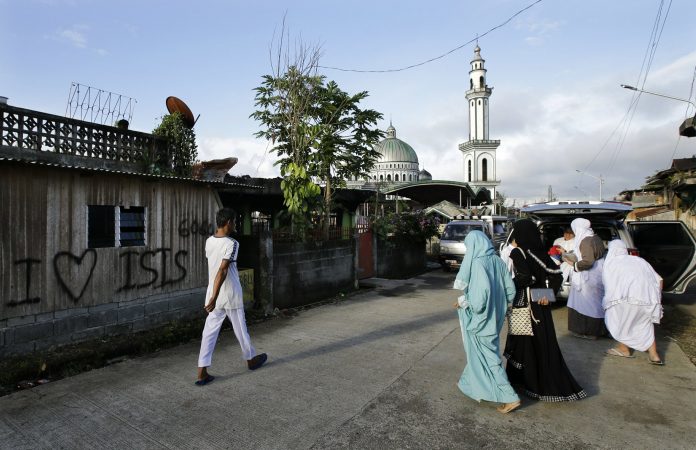
MANILA – Congress approved on Wednesday the third extension of martial law in Mindanao. The southern region will continue to be under military rule until the end of 2019.
A total of 235 lawmakers voted in favor of the extension, while 20 were against and one abstained. Of the senators, 12 were in favor, five objected and one abstained. Among representatives, 223 approved and 23 dissented.
According to Executive Secretary Salvador Medialdea, the extension was needed because local terrorist groups were still planning to establish a wilayat, or a caliphate in Mindanao.
“Remnants of local terrorists groups composed of the Abu Sayyaf Group and Daulah Islamiyah have continued with their political thrust in establishing a wilayat,” Medialdea said.
“The Bangsamoro Islamic Freedom Fighters, on the other hand, have remained adamant in their pursuit of establishing an independent Islamic state,” added the Palace official.
Medialdea further said the administration was also wary of other foreign terrorists, which shared the sentiments of local terrorist groups who wanted to unseat President Rodrigo Duterte.
“We cannot turn a blind eye that Mindanao is still in the midst of rebellion,” Medialdea said. “This necessitates the grant of a further extension of martial law and the suspension of the privilege of the writ of habeas corpus.”
Department of National Defense secretary Delfin Lorenzana, for his part, said martial law needed to be extended as the government “needs more time to neutralize” threat groups.
“’Di ito katulad ng dating martial law (Marcos time) na absolute power ang pinapatupad ng military. Gusto namin mahuli lahat ng ating kalaban pero may mga sinusunod po tayong mga batas. We need more time to neutralize them, to reduce their capability to create trouble,” Lorenzana said.
OPPOSITION
Ilonggo senator Franklin Drilon and Rep. Carlos Zarate of Bayan Muna party-list disagreed with the extension, insisting there was no clear presence of rebellion in the region.
“There is nothing in this foreground cited that shows actual uprising, actual rebellion, actual armed uprising,” Drilon said. “There is no ground. There is no actual armed uprising that is taking place in Mindanao to justify the extension of martial law.”
“We must recall that Proclamation 216 was premised on the siege of Marawi. The local terrorist group was classified by the Armed Forces as merely, and I quote, merely a peace and order problem,” he added.
Zarate, for his part, noted that the arguments used to justify the extension were the same ones used before: “to ensure the total eradication of terrorism and to quell completely … the ongoing rebellion.”
“Parang cut-and-paste lang po ang inyong justification,” Zarate said of Duterte’s letter to Congress requesting the extension.
“Lumabalabas dito, kayo na rin umaamin, na hindi epektibo iyong batas militar sa Mindanao at gusto ninyo maging unlimited ang martial law sa Mindanao,” added the representative.
NUANCES
In his letter to Congress, Duterte called for the martial law extension to sustain the gains the government has achieved in fighting rebels and terrorists in Mindanao.
The military rule in the region resulted in the “neutralization” of 685 members of “local terrorist groups” and 1,073 members of the “communist terrorist group,” said the President.
Duterte claimed there was a “19 percent reduction” in the attacks made by communist rebels this year compared to last year, while atrocities committed by terrorists dropped “29 percent.”
At the same time he said several attacks by the Abu Sayyaf, Bangsamoro Islamic Freedom Fighters, and the Daulah Islamiyah, or the Islamic State-linked Maute group, make the martial law extension necessary.
“Public safety indubitably requires such further extension to avoid the further loss of lives and physical harm, not only for our soldiers and the police, but also to our civilians. Such extension will also enable the government and the people of Mindanao to sustain the gains we have achieved thus far,” Duterte said.
Under the 1987 Constitution, the president is allowed to declare martial law and suspend the privilege of the writ of the habeas corpus “in case of invasion or rebellion (or) when the public safety requires it” for a period of 60 days.
Duterte placed Mindanao under martial law on May 23, 2017 when the Maute group laid siege on Marawi City. Congress already extended the martial law twice, with the second extension set to expire by the end of 2018./PN




